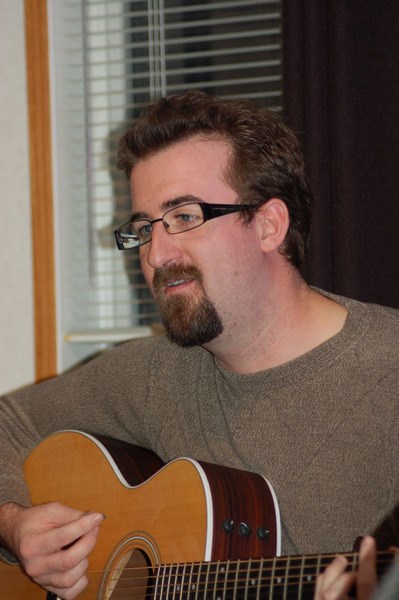March is National Music Therapy Awareness Month and in 14 communities across the country - including here in Thompson - marchers will be marching March 30 to raise money and awareness for music therapy, says the Toronto-based Canadian Music Therapy Trust Fund.
Marches are also planned for Vancouver, Calgary, Edmonton, Saskatoon, Winnipeg, Montreal, Halifax, and in Ontario, in Windsor, Waterloo, Exeter, Guelph and Mississauga.
The London, Ont.-based Canadian Association for Music Therapy and its provincial chapters are also supporting the event. The mission of the Canadian Association for Music Therapy is to promote excellence in music therapy practice, education, research and development; to increase access to high quality music therapy services; to further the awareness of music therapy in Canada and to serve as an organizational agency for its members.
Russell Peters, who owns Tonal Connections Music Therapy and moved to Thompson in the summer of 2010, is the only music therapist in Northern Manitoba and said March 16 in an e-mail that "there are very few music therapists in Manitoba, and I am the only one in the North. As you can imagine, it can be a challenge to secure funding for music therapy programming. However, music therapy has the potential to transform the lives of many of our most marginalized people.
"The Canadian Music Therapy Trust Fund is a non-profit organization that is committed to jump starting new music therapy programs. With the support of the Canadian Association of Music Therapy and its provincial chapters, we are organizing the March for Music Therapy on March 30.
"The Thompson event will be held at the Thompson Regional Community Centre (TRCC) starting at 1 p.m. We will do a 4km walk around town (or around the walking track if weather is nasty). This will be followed by an open mic/coffee house and refreshments for marchers and volunteers."
Peters told the Thompson Citizen in a Jan. 12, 2011 interview: "Sometimes people think 'music therapy, well I put an iPod on all the time,' and that's wonderful - but music therapy is based more on the interactive approach. It's an alternative way of promoting health. It's particularly useful for three main populations - geriatrics, particularly Alzheimer's and related dementias, children with autism, and adults and children with mental retardation or developmental disabilities."
Peters said that while some clients are referred to him by doctors or therapists, it's not a necessity - anybody can phone him up to say that they, or somebody they know, is interested in learning more about music therapy and what he has to offer.
"I look at ways that I can involve that person, to the best of their ability, in the music-making process," he said at the time.
"There's a lot of improvisation, a lot of spontaneous composition. I'll do a lot of singing of familiar songs - and again, that depends on the person. If it's a child, I'll do some music from the standard child's repertoire. With older people, I find country is very popular - Johnny Cash and Willie Nelson. The old songs from the war era are wildly popular with people who have Alzheimer's, because they're at a certain age where they've become hardwired in their brain. Even people that are severely impaired - they might not be able to speak anymore, they might not be able to have a conversation, but they can sing all the words."
Peters earned a bachelor's degree in psychology from the University of Winnipeg before obtaining his four-year undergraduate degree in music therapy from the School of Music at Canadian Mennonite University in Winnipeg.
He is a member of the Music Therapy Association of Manitoba, which is active mostly in Winnipeg.
There is no set format or textbook structure as to how music therapy works, said Peters. He finds himself tailoring each session to the needs and responses of the client - what problems they are having as well as what they are capable of musically. "It's very much based on an interactive approach," he explained. "I've got a big bag of percussion instruments, basic instruments that anybody can play."
"There isn't a textbook goal," said Peters. "During the assessment, I'll figure out what exactly it is we're trying to achieve with this person. For some people, it might be a matter of having them become more communicative or more open socially, particularly if they're working in a group situation. It generally relates to issues of motivation, communication, self-expression. Mainly the goals are going to be psychological in nature, but they can be physical - increasing range of motion, for example."
"If you look at any therapy, there's going to be two very important components - there's the tool, and the relationship," he noted. "In the case of music therapy, music is the tool that we use to form and to nurture a therapeutic relationship, which we hope will motivate the client we're working with towards a positive change."




